The Catholic Church on Natural Burial / “Green Burial” │ Funeral Facts
Below is a transcript the the video:
Hello and welcome to the funeral facts with Deacon Marc
We’ve been going on about a three-week now this is our 4th edition around the final disposition. We talked about what his final disposition? The traditional ways of final disposition, the not so traditional but permitted ways, and then last week we talked about non options and why they were non option.
This week we’re going to talk about a question that like goes on the fringe of all that and it all comes down to how do you define this answer.
Is natural burial permitted?
And anytime, I get that question all the time, can I have natural burial? and first thing I gotta ask them is: what do you consider a natural burial? because in many cases they go back into the composting and different things like that when we’ve already talked about that and that’s not a go and this is why it’s not a go, but we can do an environmentally friendly burial and the church embraces and encourages us to respect the environment and to be environmental friendly so natural burial done properly within the Catholic view is something that is greatly permitted.
So what is a natural burial that is environmentally friendly and aligned with Catholic teaching? And so I can talk about a couple of different things first of all, you don’t have to be embalmed. You can say no to embalming we don’t have to have all those chemicals in your body we don’t have to have all those chemicals in the world you can say no to embalming.
I do need to let you know though if you say no to embalming you have to have a closed casket in most cases. Most cases, most funeral homes will not let you have an unemblamed, open casket. I don’t think your family wants to have, see you unembalmed in an open casket. It just is not, the body deteriorates way too quickly. so you don’t have to have embalming.
You don’t have to have a casket, in most cases. I’ve had people asking I buried in a big sheet type of thing and the answer is yes there’s no requirement that you have a casket. Can I be buried directly on the ground? Can I my body be touching dirt? The answer is yes you can.
And then the final thing I’ve been asked is can we do it so that there’s no machinery digging the grave the answer is yes depending upon the cemetery you can do that, but it probably is going to be very expensive because it costs a lot of money to hand dig the hole that is needed for proper burial.
So those are things that you can do people to minimize the environmental impact the and all that on on the environment is that you can do no embalming, you can do no casket, you can do directly upon the ground, and you could do no machinery if you wanted to do so.
All those contribute to a natural burial so really you can have a burial where someone passes away and you’re put into the ground, but you gotta talk to the cemetery because even in our cemetery we do have one condition upon all that is that we do require that there is a cement vault placed over top of your body so that it prevents the ground from caving in.
What we don’t want to have happen is a safety issue where we have this flat cemetery then all of a sudden we have this deep ditch that is provides with the safety issue and an issue for us to do the landscaping and upkeep of it and so in our cemetery you can be buried on the ground but you have to have a cement vault over top of you to prevent that ground from caving in and make sure that it’s a safety issue.
So all those things can be done it really is a matter of if you want a natural burial call it the cemetery call us up talk to us here about all of it Saints Simeon we can work through the different issues with you and talk to you through what you can and cannot do but in the bottom line is; We want to be environmentally friendly we want to support human being environmentally friendly and there’s a lot that we can do to accomplish that
That is this week’s funeral facts with Deacon Marc make it a great day.
For more information about Catholic Church teaching, visit our website: https://cfcscolorado.org/catholic-teaching/
